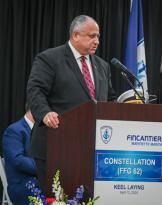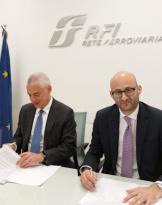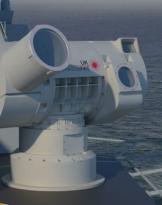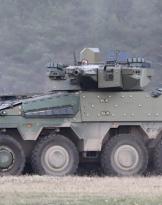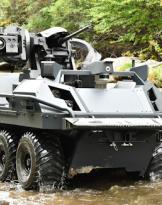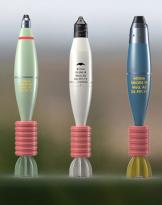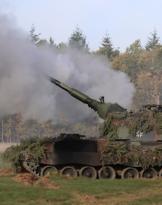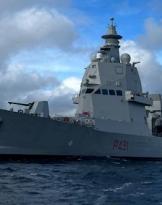At the DSEI Japan exhibition in Tokyo, major defense electronics companies from Japan, the United Kingdom and Italy announced the signing of an agreement to develop a permanent industrial collaboration.
The companies Mitsubishi Electric representing Japan, Leonardo UK for the United Kingdom and Leonardo and Elettronica for Italy, will strengthen their relations and evaluate suitable operational models, in view of the next phase of the GCAP (Global Combat Air Program). In parallel, the research and development activity already started by the partners will be continued.
As national champions in defense electronics, each company contributes a wealth of expertise and experience in the ISANKE & ICS (Integrated Sensing And Non Kinetic Effects & Integrated Communication System) domain to the program. In Japan, Mitsubishi Electric has already taken part in the development of advanced electronics under the national FX project. In Italy, Leonardo and Elettronica have been involved in the maturation of future multi-domain technologies for air combat, such as sensors, communications and data fusion under the "Italian Defense Technology Initiative". Finally, Leonardo UK is one of the founders of the Tempest national project, born in 2018 to develop technologies for sixth generation air combat.
The teams will collaborate to shape the ISANKE & ICS domain, i.e. the advanced electronics on board the GCAP platform, which will provide the aircraft crew with an advanced level of information superiority and self-protection capabilities. The ISANKE component will develop the potential of sixth generation sensors: from the traditional model of individual sensors for air combat, we will move on to a fully integrated sensing, information fusion and self-protection capability for each platform.
The ICS component will enable sensors to operate in a network composed of manned and unmanned aircraft, as part of a larger, multi-domain system of systems for each nation. ISANKE and ICS will also ensure that the three countries of the GCAP program can interact with allies in the course of joint operations.
Integrated across the five domains air, land, sea, space and cyber, the GCAP core platform will rapidly handle vast amounts of data, providing aircrew with the information superiority they will need to succeed in the most complex operational environments, as well as providing valuable information to other operators. All this makes the XNUMXth generation ISANKE & ICS domain more efficient than the previous generation's operational capabilities.
To deliver this capability, partners begin with the understanding that traditional program structures, infrastructure, and performance metrics need to be re-evaluated to meet the program's 2035 goal. The new agreement includes recognition of key principles that will make it possible to respect these deadlines, while responding to the need for a spirit of equal partnership on the part of the three nations. It will also allow for an approach that meets each country's ambitions in terms of integrated mission support, freedom of action, and freedom to change. As partners aim to build a permanent collaboration platform, national requirements for industrial capabilities and principles of shared intellectual property will be considered in the spirit of a fully integrated tri-national programme.
In this process, the companies involved can draw on the experience gained in large international collaborations, often benefiting from previous joint activities. For example, Mitsubishi Electric played a key role in Japan's F-2 program. At Leonardo, as a partner in the Eurofighter Typhoon programme, both the Italian and UK teams work on the electronically scanned radar for the aircraft as part of the EuroRADAR consortium. In addition, Leonardo and Elettronica already collaborate to provide the Typhoon defense subsystem as a design authority in the EuroDASS consortium. These collaborations have resulted in essential capabilities for the Eurofighter Typhoon throughout the life of the program and will continue to do so for years to come. Finally, Leonardo UK and Mitsubishi Electric have been working together on the Anglo-Japanese JAGUAR radar technology project since 2018, within which they have developed effective cooperation.


